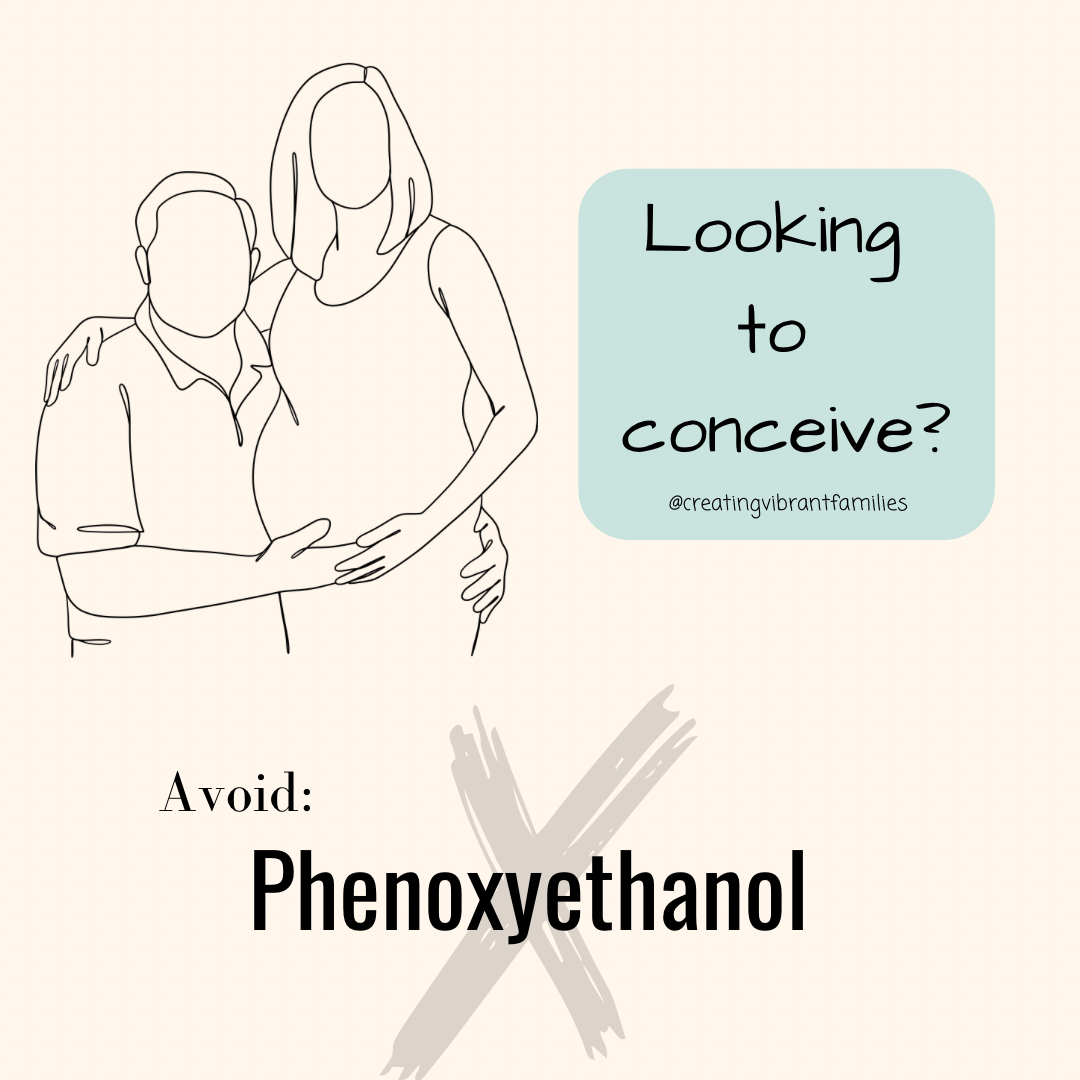The Hidden Dangers of Phenoxyethanol
A Closer Look at its Impact on Health and Fertility
In the pursuit of healthier lifestyles, individuals often scrutinize the ingredients in their personal care products. One such ingredient that has raised concerns is phenoxyethanol. This synthetic preservative, commonly found in cosmetics, skincare, and even some pharmaceuticals, has come under scrutiny for its potential health risks. In this blog post, we'll explore why you should consider avoiding phenoxyethanol, where it lurks in everyday products, alternative names it goes by, and its potential impact on fertility.
What is Phenoxyethanol?
Phenoxyethanol is a synthetic compound often utilized as a preservative in various personal care and cosmetic products. Its primary function is to extend the shelf life of these products by inhibiting the growth of bacteria and mold. While it's effective in preventing microbial contamination, recent studies have prompted concerns about its impact on human health.
While it is considered ‘safe’ for use in cosmetics and skincare within specified concentration limits, there have been concerns raised about its potential impact on health. It's important to note that individual responses to chemical exposures can vary, and the available research on phenoxyethanol is not entirely conclusive. Here are some considerations:
Skin Irritation:
Phenoxyethanol can be a skin irritant, particularly for individuals with sensitive skin. Some people may experience redness, itching, or rash after exposure.
Potential for Allergic Reactions:
Allergic reactions to phenoxyethanol have been reported, though they are relatively rare. Symptoms may include hives, swelling, or more severe reactions in sensitive individuals.
Ingestion Concerns:
While the concentration of phenoxyethanol in personal care products is generally low, accidental ingestion (for example, by children) can be a concern. Ingesting higher amounts can lead to symptoms such as nausea, vomiting, and diarrhea.
Reproductive and Developmental Concerns:
Some studies on animals have suggested potential reproductive and developmental effects. However, these findings may not directly translate to humans, and more research is needed to establish a clear link.
Safety During Pregnancy:
Pregnant individuals may be concerned about the safety of using products containing phenoxyethanol. The limited available data suggests that, when used within recommended concentrations, it is unlikely to pose a significant risk. However, it's advisable to consult with healthcare professionals for personalized advice.
Cumulative Exposure:
One consideration is the cumulative exposure to phenoxyethanol from various products used daily. While each product may contain only a small amount, the combined exposure over time may contribute to an individual's overall chemical burden.
Where is Phenoxyethanol Found?
Phenoxyethanol is pervasive in the beauty and personal care industry. Common products that may contain this preservative include:
Skincare Products: Lotions, creams, and serums.
Cosmetics: Foundations, lipsticks, eyeshadows, and mascaras.
Hair Care Products: Shampoos, conditioners, and styling products.
Cleaning Products: Certain disinfectants and sanitizers.
Alternative Names for Phenoxyethanol: Identifying phenoxyethanol on product labels might not be straightforward, as it goes by various alternative names. Being aware of these aliases can help you make informed choices:
Ethylene Glycol Monophenyl Ether
2-Phenoxyethanol
Euxyl K® 400
PhE
Dowanol™ EP
The Impact on Fertility:
For those individuals contemplating pregnancy, understanding the potential impact of phenoxyethanol on fertility is crucial. Studies suggest that exposure to certain chemicals, including phenoxyethanol, may have adverse effects on reproductive health. While more research is needed to establish a definitive link, minimizing exposure to potentially harmful substances is a prudent approach for those planning to conceive.
Being informed about where it hides, its alternative names, and staying updated on emerging research can empower individuals to make choices aligned with their health and family planning goals. Always do your research and consult with healthcare professionals for personalized advice and explore alternative products that prioritize your well-being.


